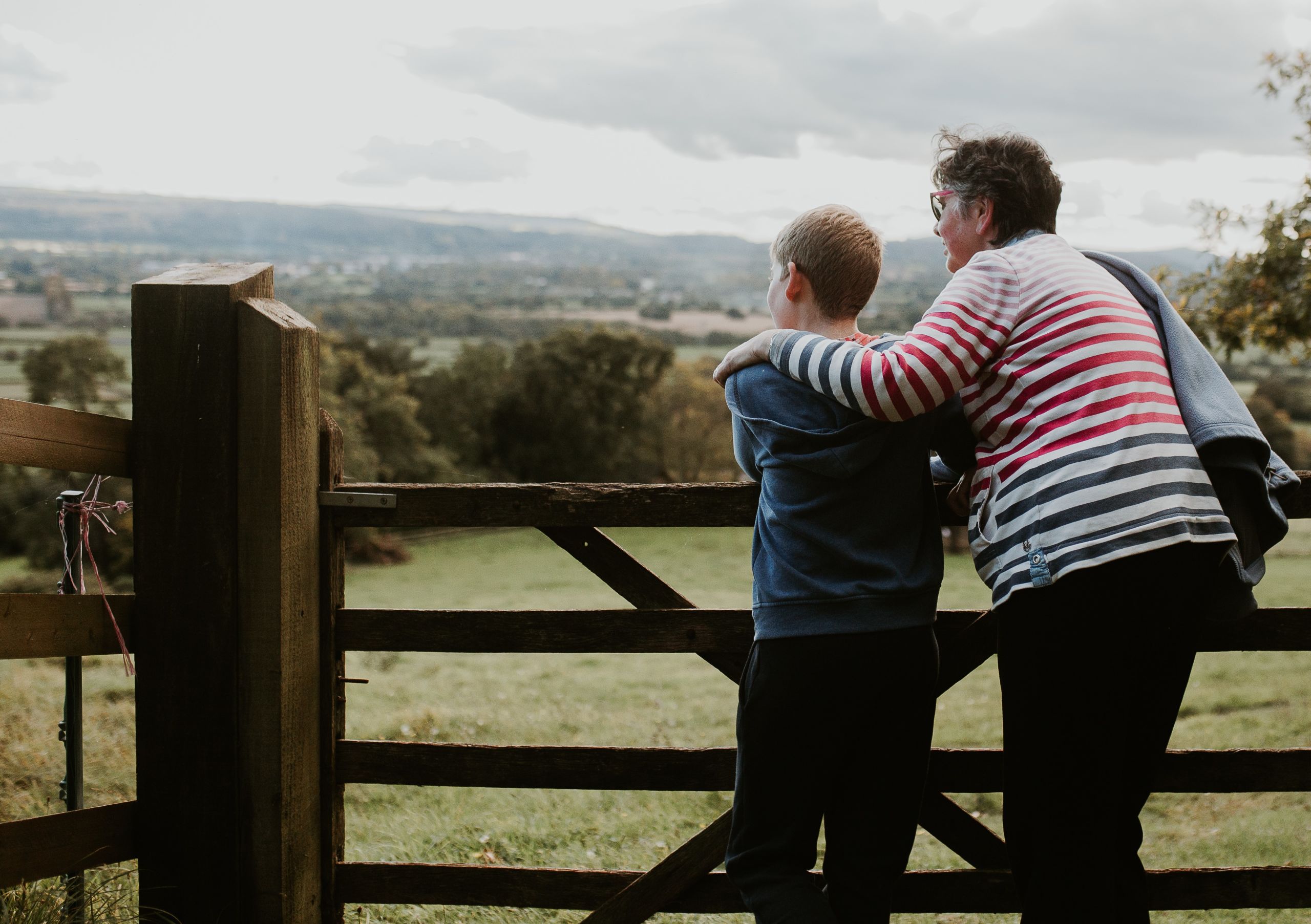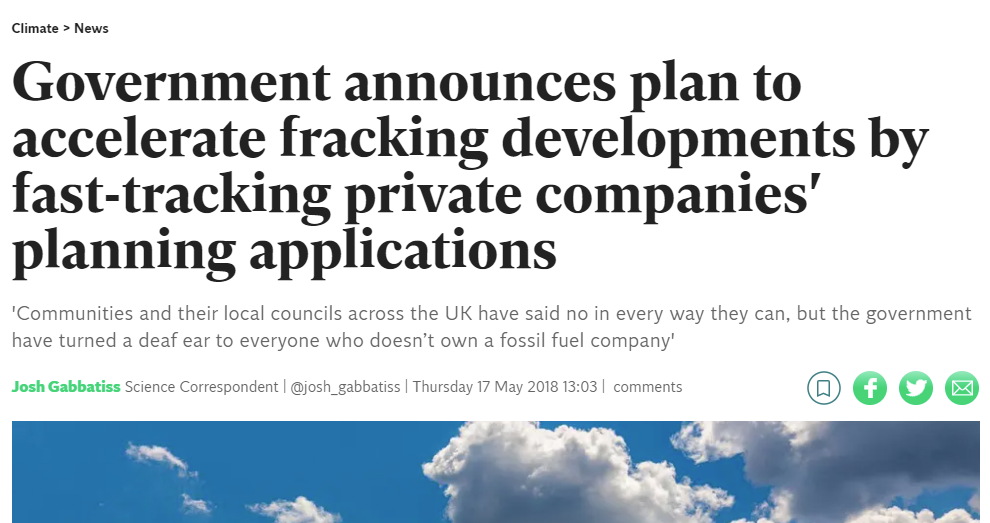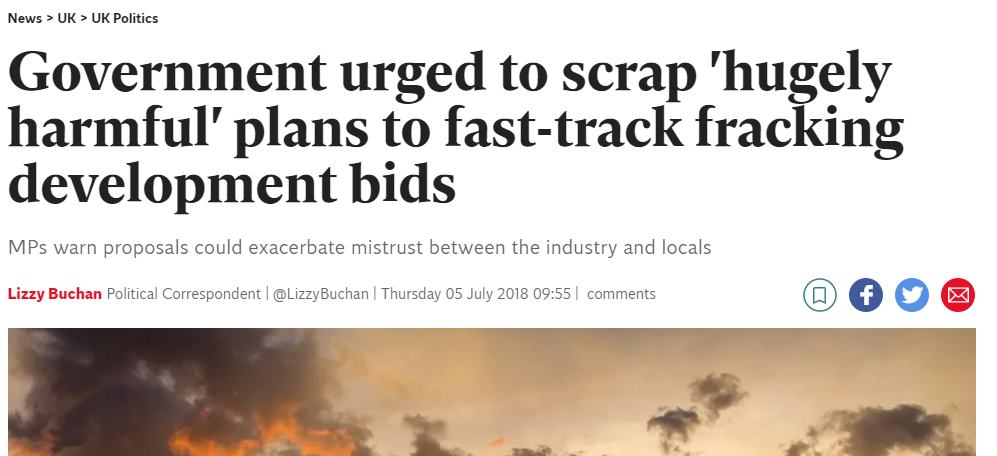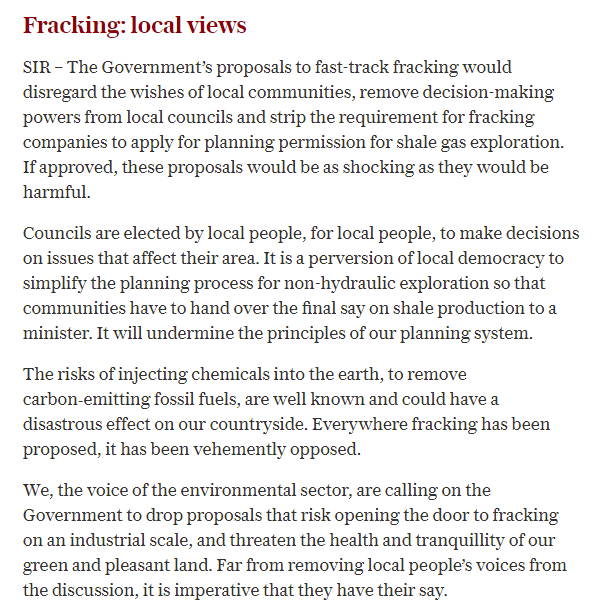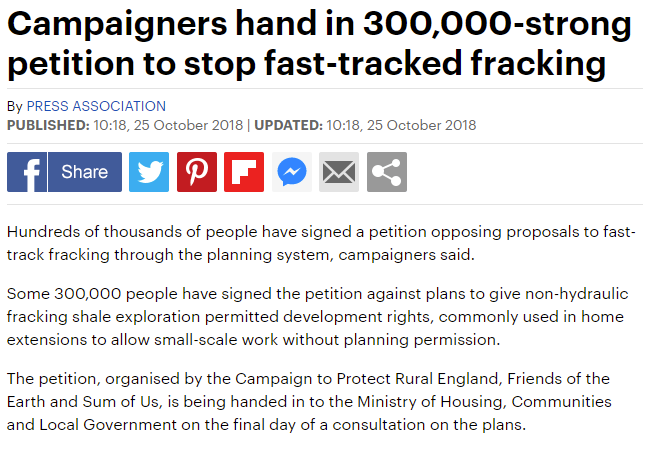How we helped to
end fracking
After the government ditched plans to force fracking on local communities, we're looking back at what made the campaign such a huge success.
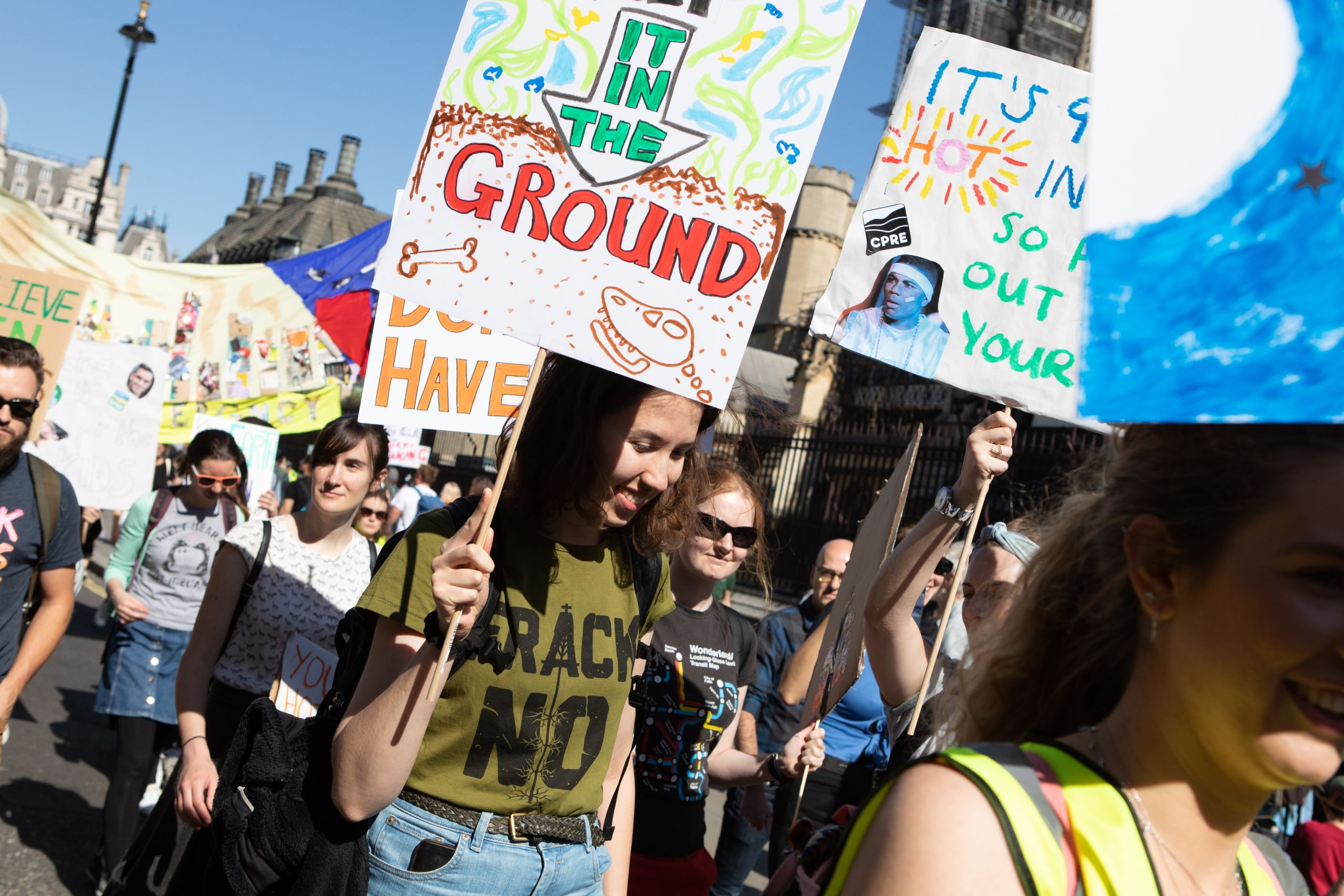
In 2018, the government announced proposals to fast-track fracking applications through the planning system. This would have been a disaster for efforts to fight the climate crisis, and for local communities unable to have their say on what happens in their local area.
We've always believed that the concerns of local people should be at the heart of planning, but these plans completely undermined this principle.
'Climate breakdown poses the biggest threat to the countryside.'
And, as climate breakdown poses the biggest threat to the countryside, we oppose fracking because of its contribution to greenhouse gases in the atmosphere as well as the impact the rigs and related traffic have on the industrialisation of the countryside.
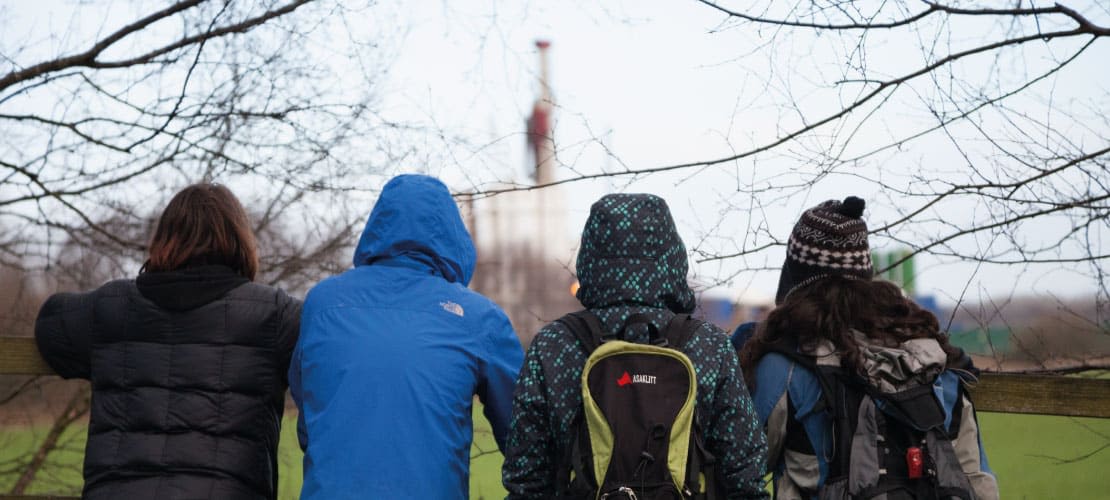
So we launched a huge campaign to push for communities to have their say on fracking. Together with other campaigners and thousands of CPRE supporters, we forced the government to rethink its plans, and saw the end of fracking in the UK.
This is no small feat, and was achieved in the face of fierce lobbying by the fracking industry. But, in the end, people power and common sense prevailed. This success shows that when we come together in huge numbers, we can have a real and lasting impact.
Let's take a look at what made the campaign such a success.
How it all started
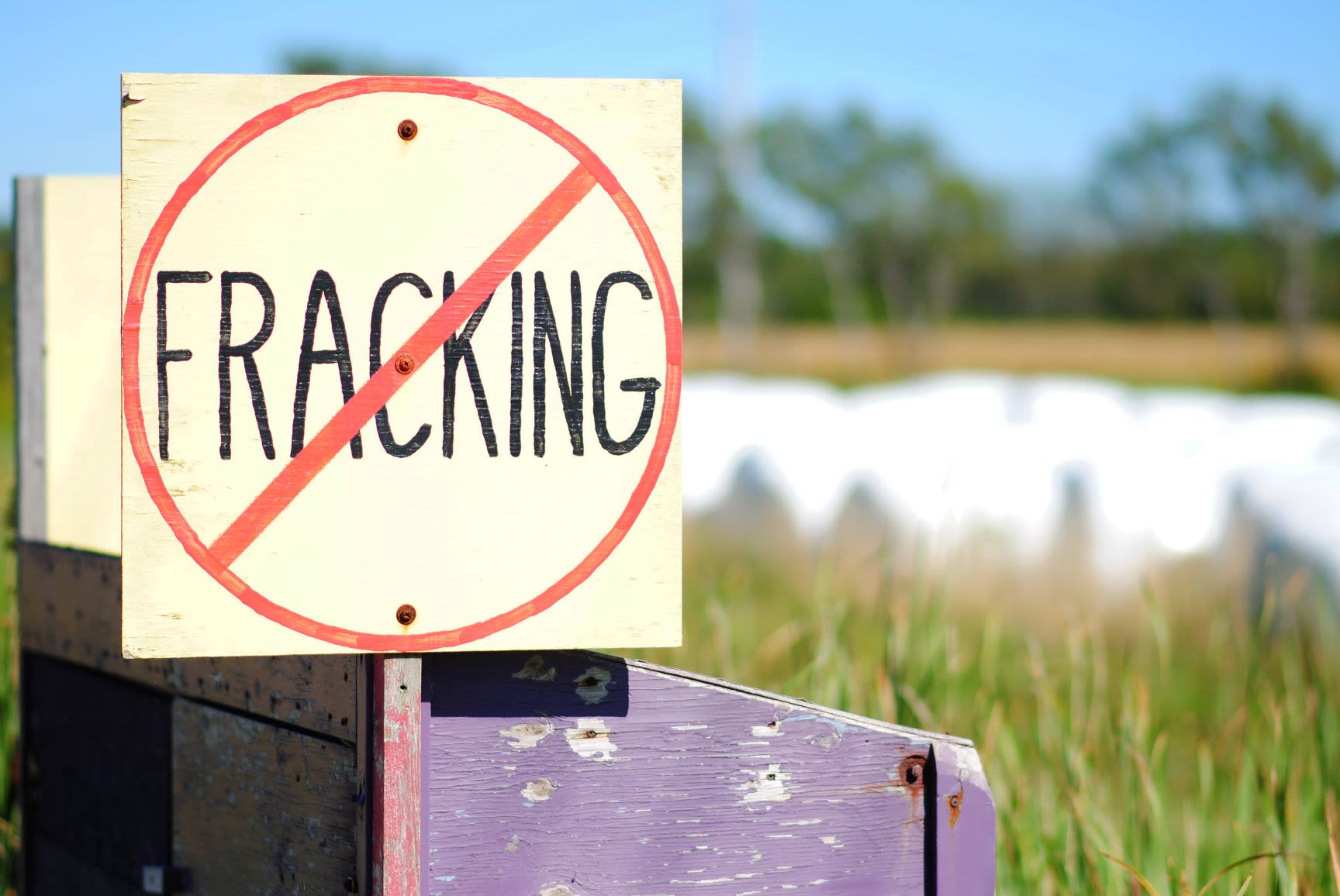
Fracking was never a good idea. This method of extracting oil and natural gas from shale rock underground is controversial for lots of reasons. Its large-scale adoption could have industrialised our countryside, pushed communities out of decision-making and worsened the climate crisis. And it carried the risk of causing earthquakes near where people live.
There had already been a thriving, energetic and successful anti-fracking movement in the UK since 2011, when protests started appearing in Lancashire and Sussex, and many environmental NGOs, particularly Friends of the Earth, had been campaigning against fracking for many years. But it was clear that a new direction was needed to ensure the force of the opposition could be effectively translated into influencing the senior politicians who were making decisions on fracking.
In May 2018, the government released plans to allow exploratory drilling as 'permitted development' - which meant that fracking companies could set up and drill without getting planning permission. This meant local councils, and local communities, couldn't have their say in whether fracking appeared near them.
The threat was dozens of new drilling sites appearing all over the English countryside – with the risk of unrestricted environmental, landscape and climate impact.
The plans were also a disaster for local democracy, shutting local people out of the decision-making process. Local campaigner Barbara Richardson, whose Lancashire village was a target for fracking sites, told us how the plans would have affected local people.
With CPRE's long track record of work on planning and local democracy, we realised that CPRE could play a key role in leading this new direction. So we seized the chance to work with our brilliant supporters and use our expertise and reputation in planning policy to help pressure the government to turn round its plans.
Within weeks of the announcement, we launched a major petition in partnership with 38 Degrees to show the huge public opposition to the plans.
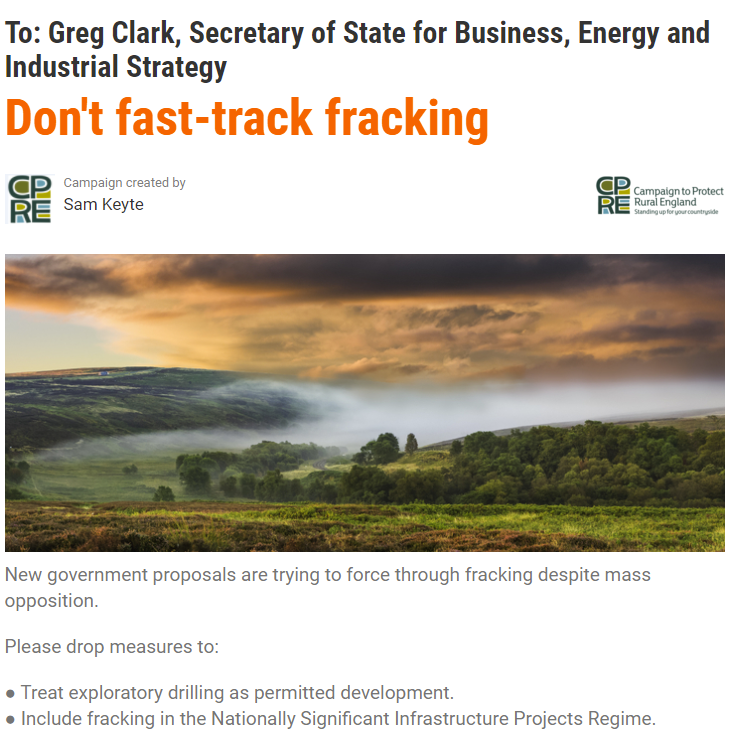
And we set up a working group with other anti-frackers, including Friends of the Earth, 38 Degrees, 350.org, SumOfUs and Frack Free United. Each of us brought different strengths to the table to form a coordinated and collaborative approach to the campaign - helping to demonstrate the widespread opposition to the government’s proposals to fast-track fracking.


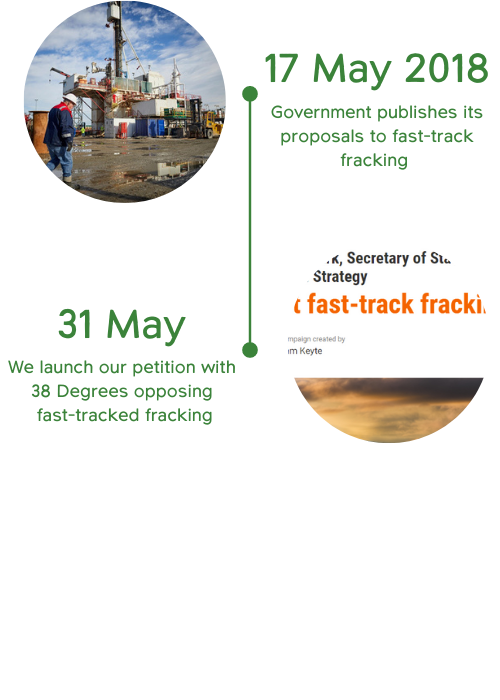

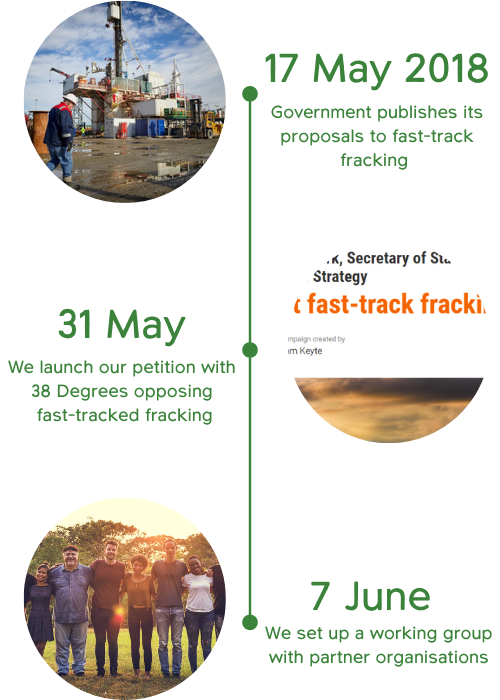
Fracking was never a good idea. This method of extracting oil and natural gas from shale rock underground is controversial for lots of reasons. Its large-scale adoption could have industrialised our countryside, pushed communities out of decision-making and worsened the climate crisis. And it carried the risk of causing earthquakes near where people live.
There had already been a thriving, energetic and successful anti-fracking movement in the UK since 2011, when protests started appearing in Lancashire and Sussex, and many environmental NGOs, particularly Friends of the Earth, had been campaigning against fracking for many years. But it was clear that a new direction was needed to ensure the force of the opposition could be effectively translated into influencing the senior politicians who were making decisions on fracking.
In May 2018, the government released plans to allow exploratory drilling as 'permitted development' - which meant that fracking companies could set up and drill without getting planning permission. This meant local councils, and local communities, couldn't have their say in whether fracking appeared near them.
The threat was dozens of new drilling sites appearing all over the English countryside – with the risk of unrestricted environmental, landscape and climate impact.
The plans were also a disaster for local democracy, shutting local people out of the decision-making process. Local campaigner Barbara Richardson, whose Lancashire village was a target for fracking sites, told us how the plans would have affected local people.
With CPRE's long track record of work on planning and local democracy, we realised that CPRE could play a key role in leading this new direction. So we seized the chance to work with our brilliant supporters and use our expertise and reputation in planning policy to help pressure the government to turn round its plans.
Within weeks of the announcement, we launched a major petition in partnership with 38 Degrees to show the huge public opposition to the plans.

And we set up a working group with other anti-frackers, including Friends of the Earth, 38 Degrees, 350.org, SumOfUs and Frack Free United. Each of us brought different strengths to the table to form a coordinated and collaborative approach to the campaign - helping to demonstrate the widespread opposition to the government’s proposals to fast-track fracking.
People power
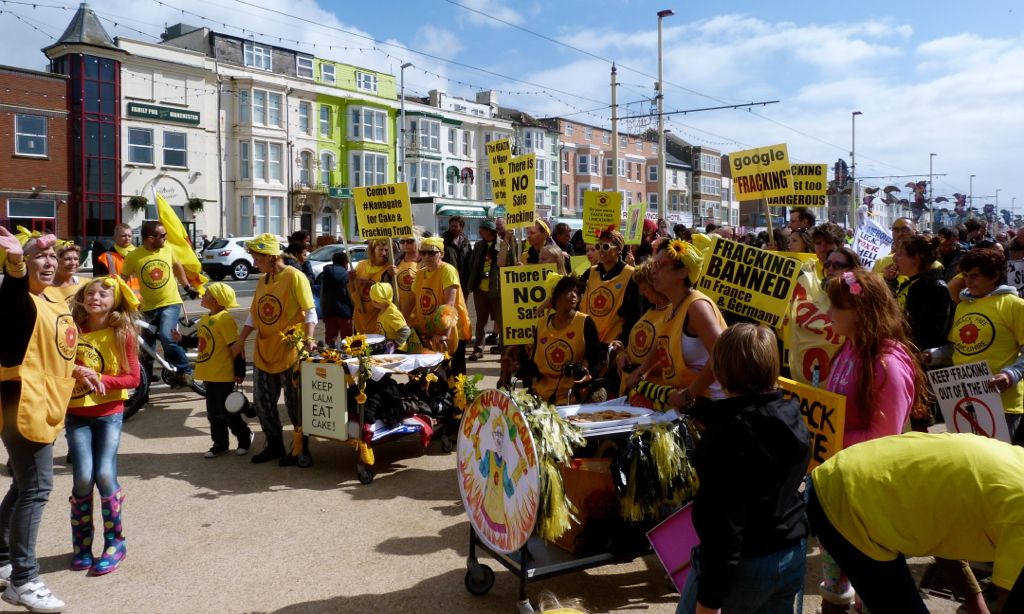



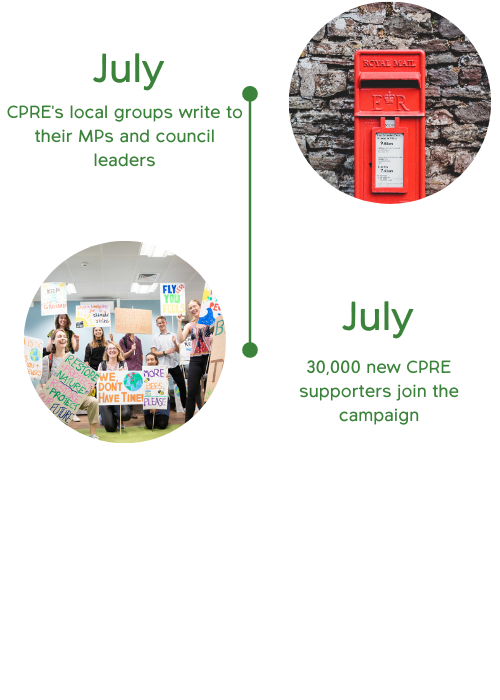
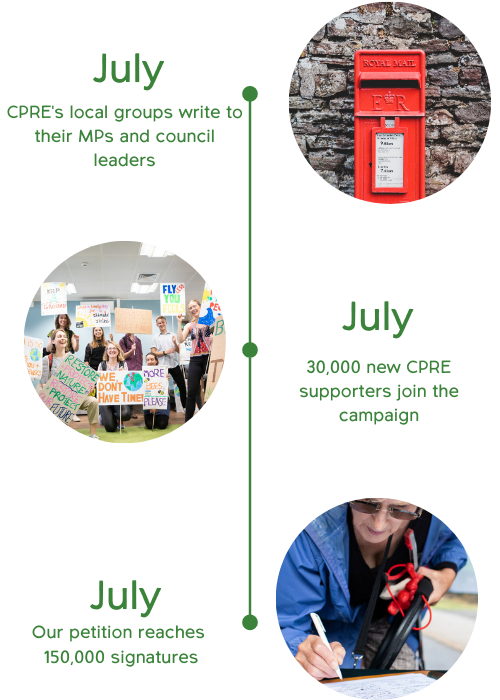
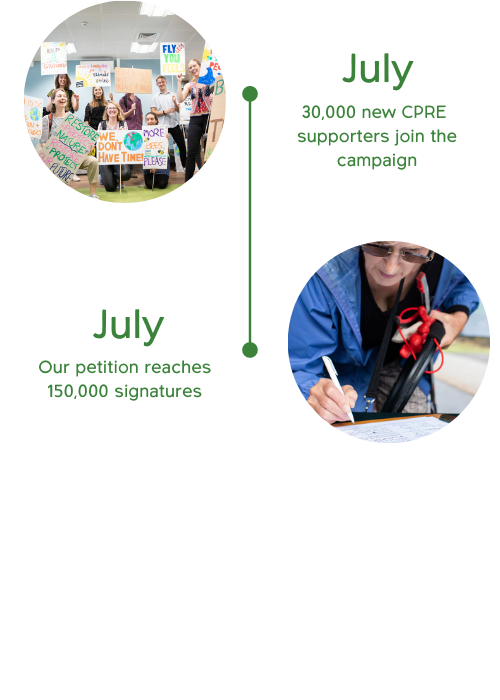
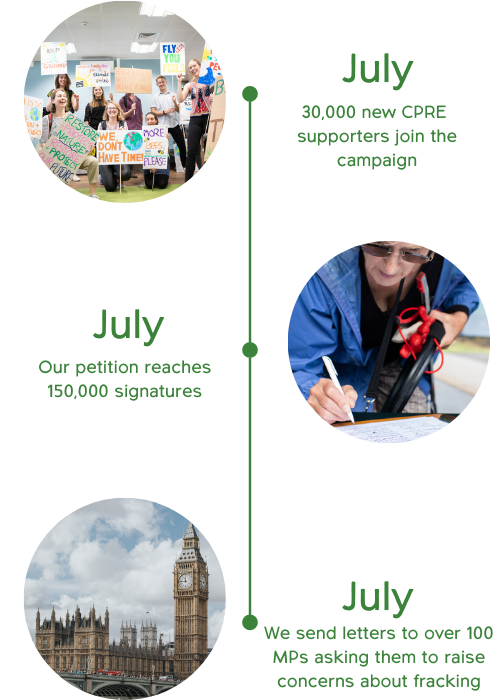
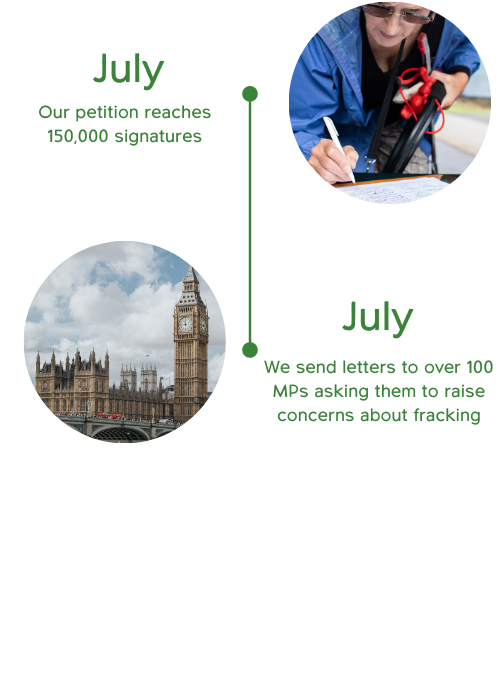
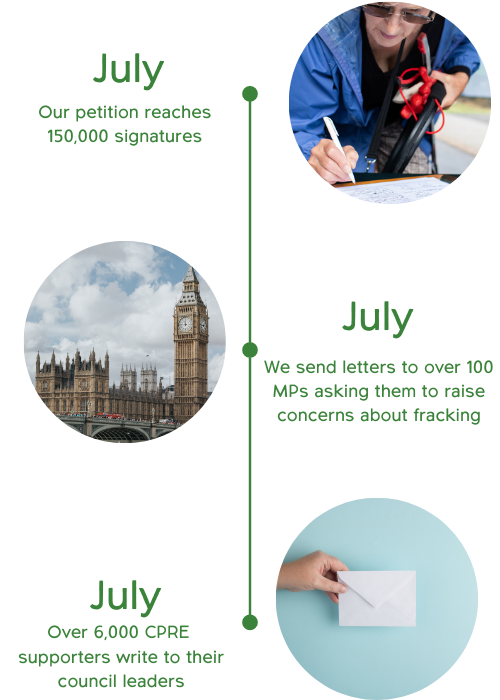
By June, thousands of amazing CPRE supporters had already got involved with our 'Don't fast-track fracking' campaign. Whether signing our petition, writing to councillors and MPs or donating to our fundraising appeal – all these individual actions added up to a massive boost for the campaign.
Just weeks after launching, our petition had reached 100,000 signatures, which quickly rose to 150,000 in July. This huge swell of support helped us grab the media's attention, with headlines in most of the major national newspapers.
At the same time, protests by grassroots campaign groups were growing at the Preston New Road fracking site, where initial attempts at fracking were causing earthquakes.
The issue clearly struck a chord, with 30,000 new CPRE supporters signing up to find out more about the campaign.
Together, we harnessed this people power to show national and local politicians just how many people were opposed to the government's plans. Thousands of CPRE supporters took part in our online action and wrote to their council leaders, urging them to take action on the issue.
TAKE ACTION >> there's still time to persuade the government to drop their fast-tracked fracking proposals. Write to your council leader today and ask them to raise your concerns with your MP. Over 10,000 letters have been sent so far! 👌https://t.co/SftZN54VxB pic.twitter.com/7AUP04FwmB
— CPRE The countryside charity (@CPRE) August 24, 2018
Public opposition to fracking grew so strong that, in August, the government stopped asking people about their support for fracking in its regular public attitudes survey. Clearly the message was beginning to hit home, but more needed to be done to get the government to drop its proposals.
By June, thousands of amazing CPRE supporters had already got involved with our 'Don't fast-track fracking' campaign. Whether signing our petition, writing to councillors and MPs or donating to our fundraising appeal – all these individual actions added up to a massive boost for the campaign.
Just weeks after launching, our petition had reached 100,000 signatures, which quickly rose to 150,000 in July. This huge swell of support helped us grab the media's attention, with headlines in most of the major national newspapers.
At the same time, protests by grassroots campaign groups were growing at the Preston New Road fracking site, where initial attempts at fracking were causing earthquakes.
The issue clearly struck a chord, with 30,000 new CPRE supporters signing up to find out more about the campaign.
Together, we harnessed this people power to show national and local politicians just how many people were opposed to the government's plans. Thousands of CPRE supporters took part in our online action and wrote to their council leaders, urging them to take action on the issue.
TAKE ACTION >> there's still time to persuade the government to drop their fast-tracked fracking proposals. Write to your council leader today and ask them to raise your concerns with your MP. Over 10,000 letters have been sent so far! 👌https://t.co/SftZN54VxB pic.twitter.com/7AUP04FwmB
— CPRE The countryside charity (@CPRE) August 24, 2018
Public opposition to fracking grew so strong that, in August, the government stopped asking people about their support for fracking in its regular public attitudes survey. Clearly the message was beginning to hit home, but more needed to be done to get the government to drop its proposals.
Political influencing
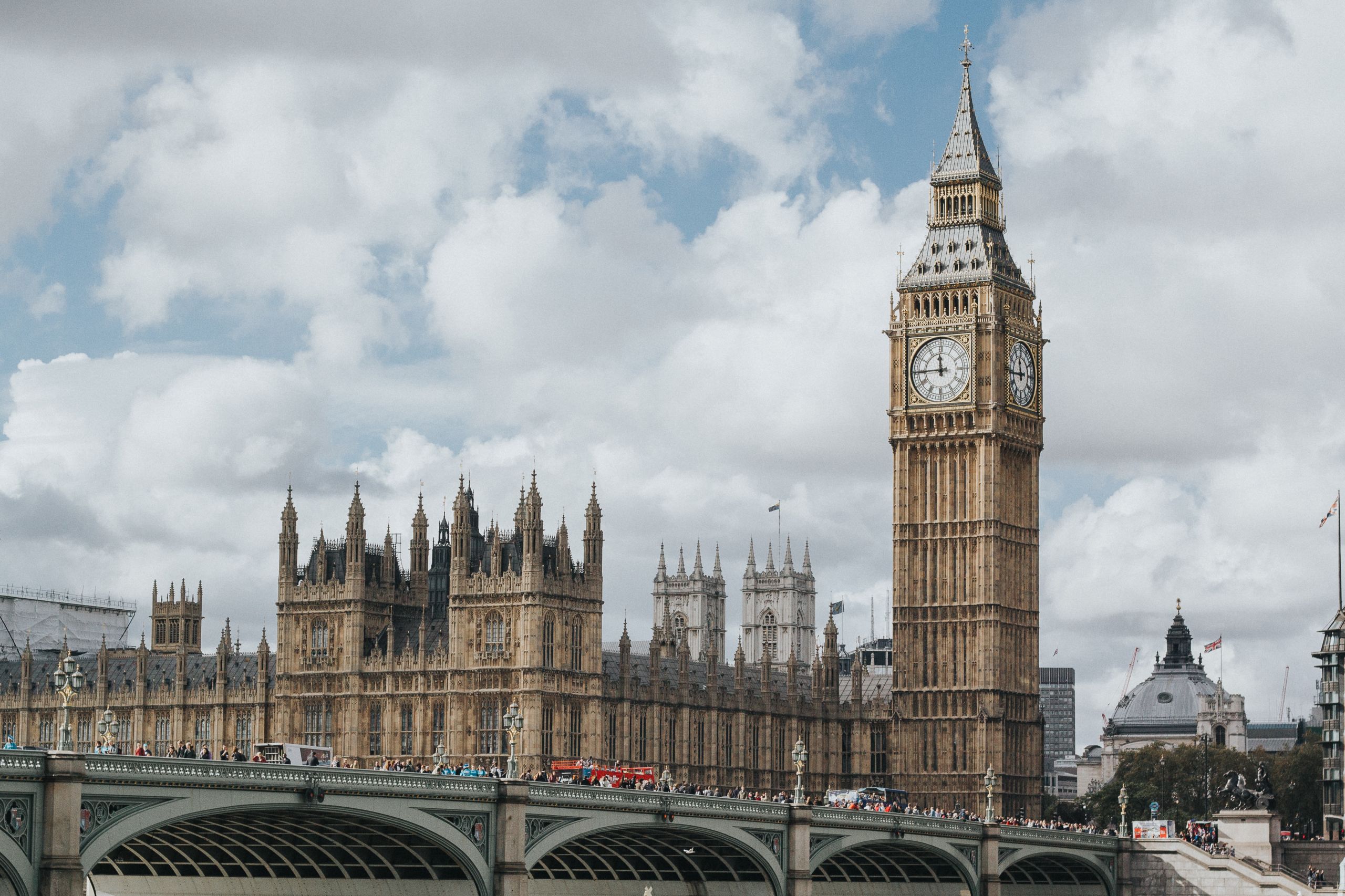
As well as demonstrating huge public opposition to the fracking proposals, we went one further by showing there was little support for fast-tracked fracking even among Conservative politicians.
Together with Friends of the Earth, we polled local Conservative councillors and found overwhelmingly that they were against government proposals to fast-track fracking. 80% said exploratory fracking should need planning permission, while 65% said local councils should have final say on fracking.
We polled @Conservatives councillors & majority are at odds with govt plans to fast-track #fracking
— CPRE The countryside charity (@CPRE) August 3, 2018
80% say exploratory fracking should need planning permission
65% say local council should have final say on frackinghttps://t.co/5sGFo8pQ9r @friends_earth #FrackturedCommunities pic.twitter.com/ZPc2Pqb3Xs
Meanwhile, CPRE's network of local groups wrote to their local MPs and council leaders asking them to oppose the plans. We also sent letters to over 100 MPs asking them to raise concerns about fast-tracked fracking.
All of this pressure led to a first parliamentary debate on the issue of fracking and local democracy. The debate was packed with MPs from all parties criticising the proposals. Many MPs mentioned how many letters they received from concerned constituents.







As well as demonstrating huge public opposition to the fracking proposals, we went one further by showing there was little support for fast-tracked fracking even among Conservative politicians.
Together with Friends of the Earth, we polled local Conservative councillors and found overwhelmingly that they were against government proposals to fast-track fracking. 80% said exploratory fracking should need planning permission, while 65% said local councils should have final say on fracking.
We polled @Conservatives councillors & majority are at odds with govt plans to fast-track #fracking
— CPRE The countryside charity (@CPRE) August 3, 2018
80% say exploratory fracking should need planning permission
65% say local council should have final say on frackinghttps://t.co/5sGFo8pQ9r @friends_earth #FrackturedCommunities pic.twitter.com/ZPc2Pqb3Xs
Meanwhile, CPRE's network of local groups wrote to their local MPs and council leaders asking them to oppose the plans. We also sent letters to over 100 MPs asking them to raise concerns about fast-tracked fracking.
All of this pressure led to a first parliamentary debate on the issue of fracking and local democracy. The debate was packed with MPs from all parties criticising the proposals. Many MPs mentioned how many letters they received from concerned constituents.
Bulletproof policy






As always at CPRE, we made sure our campaign was based on clear principles and strong evidence. This meant we were able to refute all the bogus claims levied at us from the pro-fracking lobby.
In October we submitted our official response to the government's consultation on the fracking plans. We developed this submission with the help of our local groups, many of whom had been fighting fracking for years in their local areas.
At the same time, we signed an open letter in The Telegraph against fast-tracked fracking with 19 other environmental organisations, including the Wildlife Trusts, RSPB, Greenpeace UK and the Woodland Trust.
A second Westminster Hall debate on fracking and local democracy was even more well-attended, with 40 MPs from all parties opposing the proposals - thanks again to thousands of CPRE supporters writing to and even ringing their MPs.
To top it all off, our petition reached 200,000 signatures. We joined together with our partner organisations to deliver a combined 300,000 signatures to the government - showing huge opposition the proposals.
As always at CPRE, we made sure our campaign was based on clear principles and strong evidence. This meant we were able to refute all the bogus claims levied at us from the pro-fracking lobby.
In October we submitted our official response to the government's consultation on the fracking plans. We developed this submission with the help of our local groups, many of whom had been fighting fracking for years in their local areas.
At the same time, we signed an open letter in The Telegraph against fast-tracked fracking with 19 other environmental organisations, including the Wildlife Trusts, RSPB, Greenpeace UK and the Woodland Trust.
A second Westminster Hall debate on fracking and local democracy was even more well-attended, with 40 MPs from all parties opposing the proposals - thanks again to thousands of CPRE supporters writing to and even ringing their MPs.
To top it all off, our petition reached 200,000 signatures. We joined together with our partner organisations to deliver a combined 300,000 signatures to the government - showing huge opposition the proposals.
Together, we had mobilised a backbench rebellion of Conservative MPs, demonstrated huge public opposition, presented a strong face of unity within the environmental sector, submitted detailed policy arguments, and made headlines all over the media.
The deadline for the government's decision on the plans passed in silence. So we waited.
In 2019, we fed into a National Audit Office report that was heavily critical of fracking - pouring cold water on claims that fracking could lower bills or support a green energy transition.
And then...
We did it!
The government has ended their support for #fracking in England – an effective ban.
— CPRE The countryside charity (@CPRE) November 2, 2019
This is a huge step in the right direction for tackling the #ClimateEmergency and protecting our life-affirming countryside. Well done to everyone involved in the campaign https://t.co/kmY8Tbz7Rp pic.twitter.com/CmelmtjhXr

‘Fracking is finished in the UK – thanks to the power of public protest. Make no mistake, this is a huge win for local campaigners and the final nail in the coffin of the #fracking industry in the UK.’https://t.co/cNF4m3YjJc
— CPRE The countryside charity (@CPRE) November 6, 2019
We would not be where we are today without the thousands of incredible people who spent a decade campaigning against fracking at the grassroots level. Wherever fracking was proposed, local people stood up and said no. In the end people power prevailed, and CPRE, the countryside charity, were incredibly proud to stand with them in celebration at the end!
As campaigners, we know victories like this don’t come around too often. It really is a huge win, and one that everyone should be proud of.
Local campaigner Barbara tells us how the campaign has had a positive impact on her community.
Local campaigner Barbara tells us how the campaign has had a positive impact on her community.
What happens now?
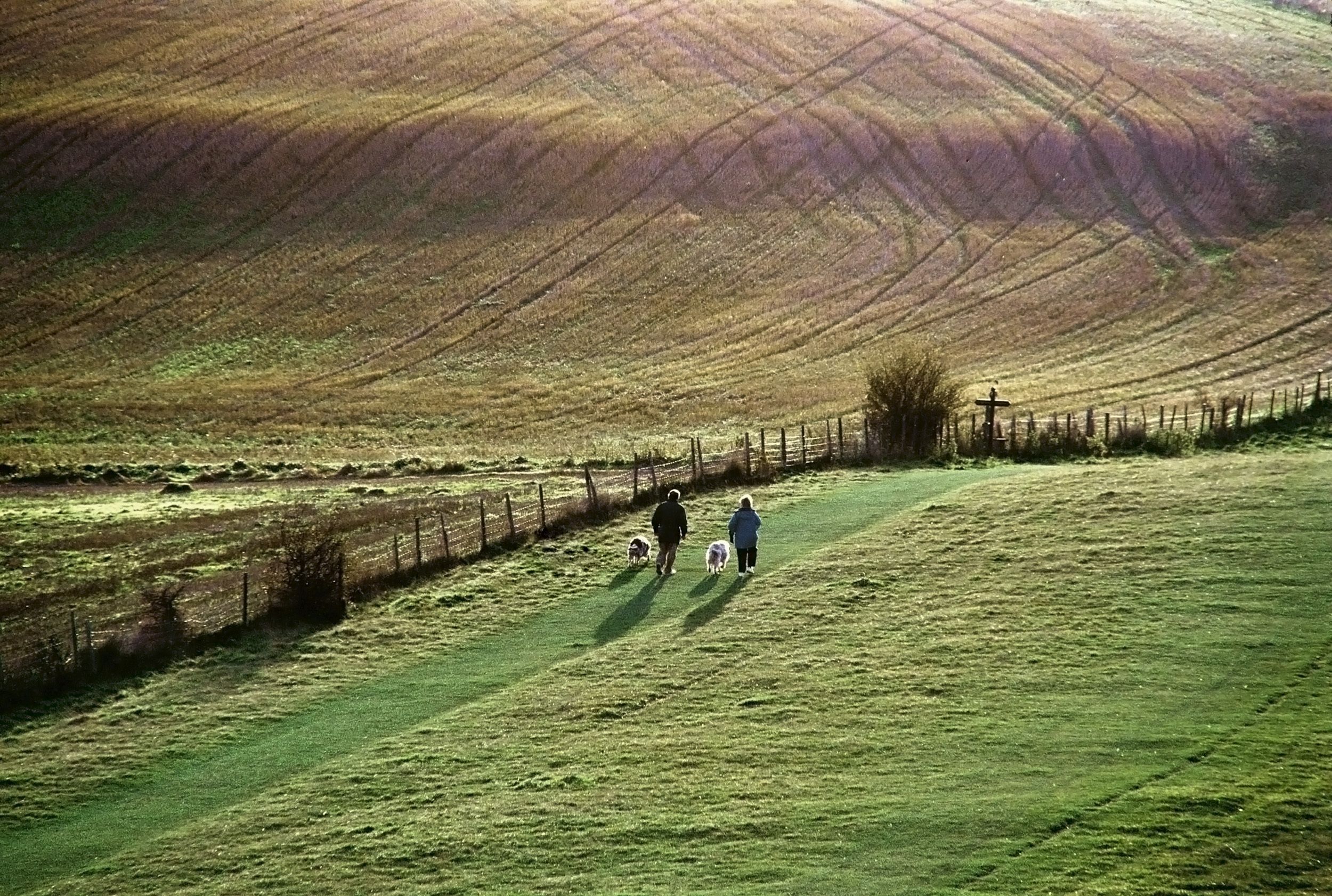
CPRE campaigns officer Mark Robinson talks about what's next for our campaigning on climate and energy
CPRE campaigns officer Mark Robinson talks about what's next for our campaigning on climate and energy
The government must now focus on new policies to tackle the climate emergency, from investing in renewables and sustainable public transport to improving the energy efficiency of our homes and restoring nature to remove carbon emissions from the air. These are all areas we campaign on, and we’ll continue to advocate for these changes to the government.
Find out more about how you can get involved
Our fracking campaign was built with the help of our supporters who gave their time, voice and donated to support the campaign. See how you can get involved with CPRE The countryside charity.
